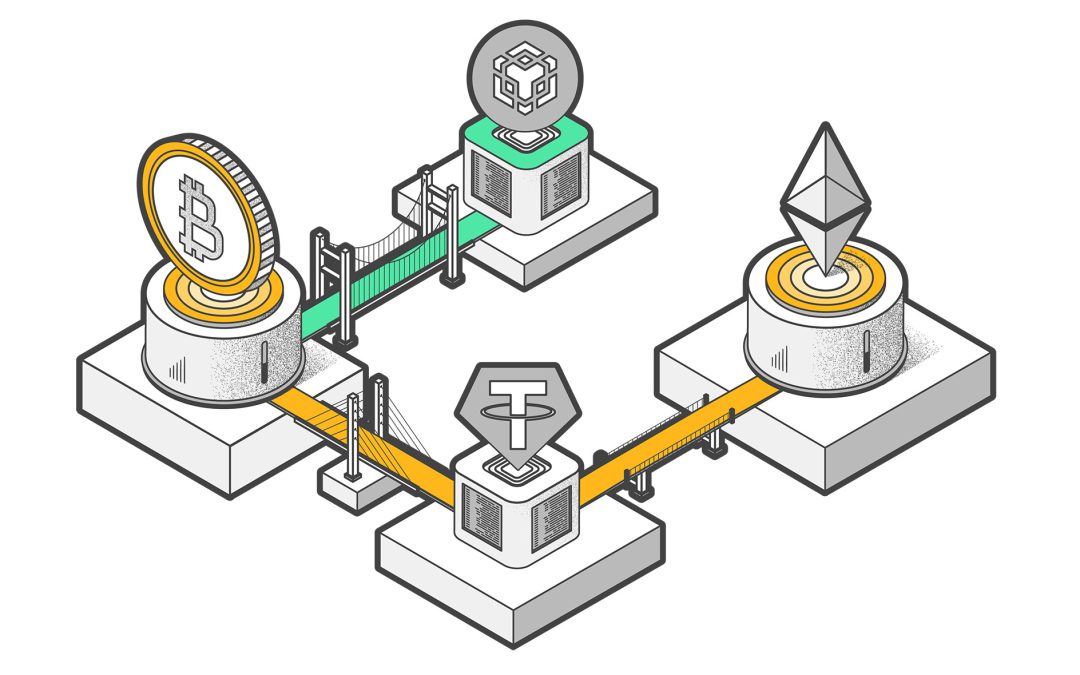The blockchain space in 2025 is a mosaic of specialized networks, each excelling in different areas such as scalability, efficiency, or smart contract execution. However, the true power of blockchain technology lies in its ability to connect and collaborate, which is made possible by cross-chain bridges. These essential tools eliminate the silos between blockchains, creating a seamless ecosystem where assets and data can flow freely. Defiway is at the forefront of this transformation, developing cutting-edge solutions like the BNB bridge and Arbitrum bridge that redefine how users and developers interact with decentralized systems.
The BNB bridge and Arbitrum bridge have become critical in enabling interoperability. The BNB bridge facilitates asset transfers between Binance Smart Chain (BSC) and other networks, ensuring broader access to liquidity and applications. Similarly, the Arbitrum bridge connects Ethereum’s mainnet with Arbitrum, a layer-2 solution, enhancing scalability and reducing transaction costs. With Defiway’s innovations, these bridges are driving the next wave of blockchain adoption.
What Are Cross-Chain Bridges?
Cross-chain bridges are infrastructure solutions designed to enable the transfer of tokens, data, and functionalities across different blockchains. Without them, blockchains operate as isolated entities, limiting their utility and hindering broader innovation. Bridges create interoperability, allowing users to take advantage of multiple blockchains’ unique strengths.
For instance, the BNB bridge empowers users to move assets seamlessly between Binance Smart Chain and other ecosystems. This enables developers to create multi-chain decentralized applications (dApps) and users to access a wider range of DeFi tools. Similarly, the Arbitrum bridge offers a connection between Ethereum and Arbitrum, reducing transaction costs and making Ethereum-based applications more accessible.
The Role of Cross-Chain Bridges in 2025
In 2025, cross-chain bridges have become indispensable for fostering innovation and accessibility across the blockchain space. Networks such as Ethereum, Binance Smart Chain, and Arbitrum excel in different areas but need bridges to collaborate effectively.
The BNB bridge enables interoperability between Binance Smart Chain and other blockchains, helping users and developers tap into diverse liquidity pools and deploy applications across multiple ecosystems. The Arbitrum bridge, on the other hand, helps Ethereum users mitigate high gas fees by utilizing Arbitrum’s layer-2 scaling technology.
Beyond DeFi, cross-chain bridges play a crucial role in industries such as gaming and supply chain management. In gaming, they enable seamless asset transfers between platforms, creating more dynamic and interconnected experiences. In supply chains, they improve transparency by linking different blockchain solutions for tracking and verification.
Challenges Facing Cross-Chain Bridges
Although cross-chain bridges are revolutionizing the blockchain industry, they face significant challenges:
- Security Risks:
Bridges are attractive targets for hackers due to the high volume of assets they process. Strengthening their security through decentralized validation and advanced cryptographic methods is a key priority. - Scalability Issues:
With the increasing adoption of blockchain technology, bridges must handle larger transaction volumes without delays or high fees. - Complex User Interfaces:
Many existing cross-chain solutions are challenging for non-technical users to navigate. Simplifying these interfaces is crucial for mass adoption.
Brands like Defiway are tackling these challenges head-on by designing solutions that prioritize security, scalability, and user experience.
Innovations in Cross-Chain Technology
The cross-chain ecosystem has seen remarkable advancements, making tools like the BNB bridge and Arbitrum bridge more effective and reliable:
- Decentralized Validation Systems:
Decentralized mechanisms distribute trust across multiple nodes, reducing the risk of single points of failure and enhancing overall security. - Zero-Knowledge Proofs:
These cryptographic techniques protect user privacy while ensuring the validity of cross-chain transactions. - Layer-2 Integrations:
Bridges like the Arbitrum bridge leverage layer-2 solutions to reduce transaction costs and improve scalability without compromising security. - AI-Powered Optimization:
Artificial intelligence identifies the most efficient paths for asset transfers, minimizing costs and ensuring faster transactions.
Defiway’s Leadership in Cross-Chain Solutions
Defiway is leading the charge in revolutionizing cross-chain technology. By focusing on innovation, the company has become a key player in developing user-friendly, secure, and efficient cross-chain bridges.
Defiway’s work on the BNB bridge and Arbitrum bridge underscores its commitment to making blockchain more accessible. The company’s solutions address common pain points, such as complex interfaces and slow transaction times, ensuring that users can navigate the decentralized world with ease.
The Impact of Cross-Chain Bridges on Industries
Cross-chain bridges have far-reaching implications for various industries:
- DeFi:
In the decentralized finance sector, bridges like the BNB bridge enable users to move assets across ecosystems, access diverse liquidity pools, and participate in cross-chain applications. The Arbitrum bridge provides a cost-effective way for Ethereum users to engage with DeFi platforms, bypassing high gas fees. - Gaming:
Gamers can transfer in-game assets across platforms seamlessly, creating richer, more integrated experiences. - Supply Chain Management:
Cross-chain bridges facilitate data sharing between blockchain networks, enhancing transparency and traceability in supply chains.
The Future of Cross-Chain Bridges
As blockchain adoption continues to expand, cross-chain bridges will remain at the heart of innovation. The BNB bridge and Arbitrum bridge are leading examples of how these tools are transforming the decentralized landscape, making it more interconnected and efficient.
Defiway’s dedication to advancing cross-chain technology ensures that these solutions will evolve to meet the growing demands of users and developers. By prioritizing security, scalability, and ease of use, Defiway is shaping a future where blockchain networks collaborate effortlessly.
Conclusion
Cross-chain bridges are vital for realizing the full potential of blockchain technology. Solutions like the BNB bridge and Arbitrum bridge are not just connecting networks—they’re enabling entirely new possibilities for decentralized applications and industries worldwide.
With leaders like Defiway driving innovation, cross-chain bridges are becoming more secure, efficient, and user-friendly. These advancements are paving the way for a decentralized future where blockchain interoperability unlocks unprecedented opportunities for growth, innovation, and collaboration.



